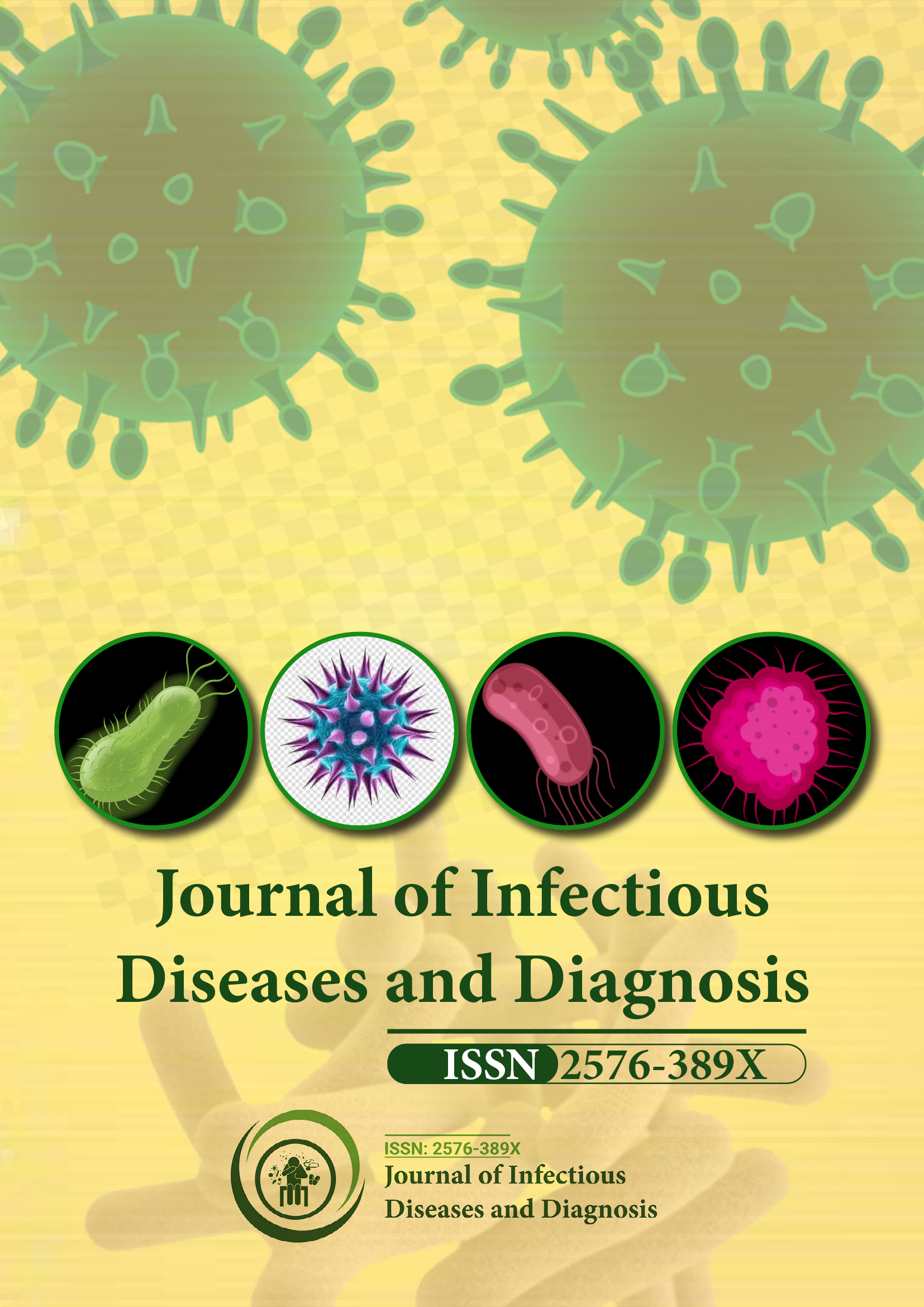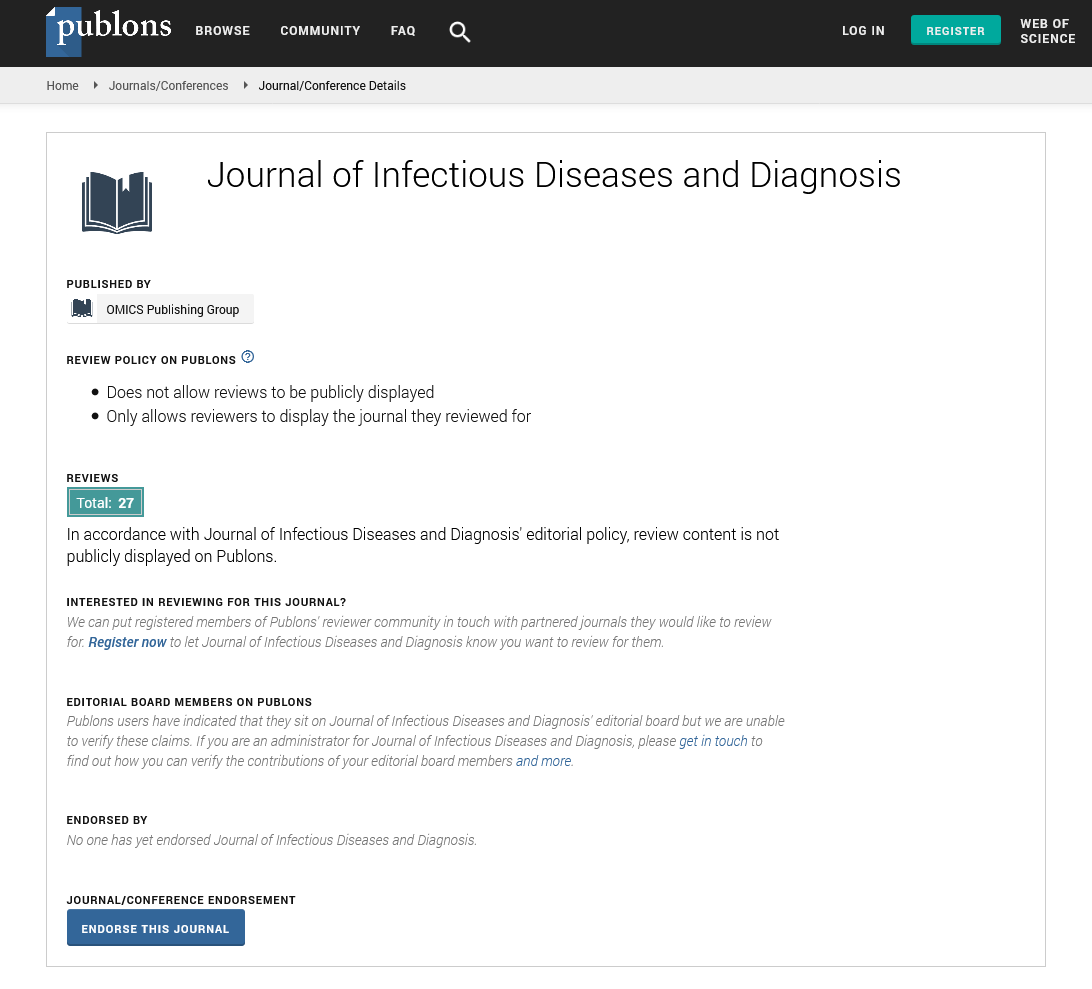Indexed In
- RefSeek
- Hamdard University
- EBSCO A-Z
- Publons
- Euro Pub
- Google Scholar
Useful Links
Share This Page
Journal Flyer

Open Access Journals
- Agri and Aquaculture
- Biochemistry
- Bioinformatics & Systems Biology
- Business & Management
- Chemistry
- Clinical Sciences
- Engineering
- Food & Nutrition
- General Science
- Genetics & Molecular Biology
- Immunology & Microbiology
- Medical Sciences
- Neuroscience & Psychology
- Nursing & Health Care
- Pharmaceutical Sciences
Commentary - (2023) Volume 8, Issue 2
Development of Infectious Disease Vaccines Using Adenovirus Vectors
Makrina Totsika*Received: 01-Mar-2023, Manuscript No. JIDD-23-20786; Editor assigned: 03-Mar-2023, Pre QC No. JIDD-23-20786 (PQ); Reviewed: 17-Mar-2023, QC No. JIDD-23-20786; Revised: 24-Mar-2023, Manuscript No. JIDD-23-20786 (R); Published: 31-Mar-2023, DOI: 10.35248/2576-389X.23.08.205
About the Study
Adenovirus vector-based vaccines are a type of vaccine that utilizes a modified adenovirus as a delivery system for antigens. Adenoviruses are a group of viruses that commonly cause respiratory illnesses, but they can also cause other types of infections. They are particularly useful for vaccine development because they can infect a wide range of host cells and are easy to manipulate in the laboratory.
In an adenovirus vector-based vaccine, the adenovirus is modified to remove certain genes that allow it to replicate and cause disease. Instead, the virus is engineered to carry genes encoding antigens from the target pathogen. When the vaccine is administered, the adenovirus infects cells in the body, which then produce the target antigens. The immune system recognizes these antigens as foreign and mounts a response, producing antibodies and activating T cells. This immune response helps protect against future infections by the pathogen.
Adenovirus vector-based vaccines have been developed for a range of infectious diseases, including HIV, tuberculosis, malaria, and influenza. They have also been used in recent years to develop COVID-19 vaccines, including the AstraZeneca/ Oxford, Johnson & Johnson, and Sputnik V vaccines.
One of the advantages of adenovirus vector-based vaccines is their ability to elicit strong immune responses. Because the adenovirus is a virus that the body has not seen before, it is particularly good at stimulating an immune response. Additionally, because the vaccine contains the genetic material for the antigen, the immune system is able to mount a more targeted response to the pathogen.
Another advantage of adenovirus vector-based vaccines is their ability to be easily modified. Because the adenovirus is easy to manipulate in the laboratory, researchers can quickly modify the vaccine to include different antigens as needed. This could be particularly useful in the development of new vaccines for emerging infectious diseases.
Despite their potential advantages, there are also some limitations to adenovirus vector-based vaccines. One concern is the potential for pre-existing immunity to the adenovirus vector. Because adenoviruses are common in the environment, many people have already been exposed to them and may have developed some level of immunity. This could potentially reduce the effectiveness of the vaccine by limiting the ability of the adenovirus vector to infect cells and deliver the antigen.
Another concern is the potential for rare side effects. In rare cases, the immune response to the adenovirus vector can cause inflammation or other adverse effects. For example, the Johnson & Johnson COVID-19 vaccine has been associated with rare cases of blood clots, which has led to a temporary pause in its use in some countries.
Despite these concerns, adenovirus vector-based vaccines have shown promise in the development of effective vaccines for a range of infectious diseases. They offer a number of advantages, including the ability to elicit strong immune responses and the ease of modification. As researchers continue to explore new ways to use this technology, it is likely that adenovirus vectorbased vaccines will play an important role in the development of vaccines for emerging infectious diseases in the future.
Citation: Totsika M (2023) Development of Infectious Disease Vaccines Using Adenovirus Vectors. J Infect Dis Diagn. 8:205
Copyright: © 2023 Totsika M. This is an open-access article distributed under the terms of the Creative Commons Attribution License, which permits unrestricted use, distribution, and reproduction in any medium, provided the original author and source are credited.

